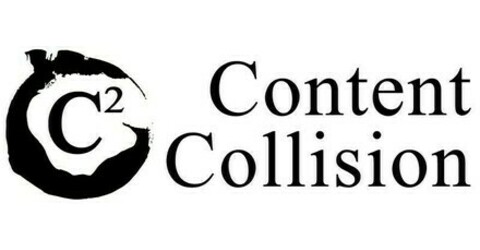Content length and SEO: Google’s subtle (but important) advice from John Mueller
More words, better SEO? Not so fast. John Mueller explains why word count won’t save your rankings.

John Mueller, Google’s Search Advocate, recently addressed a question on LinkedIn regarding the ideal content length for ranking well on Google’s search engine results pages (SERPs). The discussion attracted attention from various SEO professionals, who pushed for more concrete guidance on how Google assesses content quality. The exchange highlighted persistent questions about the balance between content length, quality, and what it means to create content that satisfies both users and Google’s algorithms.
As reported by Search Engine Journal (SEJ), Mueller’s response challenges the prevailing assumptions that SEO success is tied to specific content lengths or formulas. Instead, he encouraged a broader focus on delivering "unique value" to web users, advising against obsessing over word counts as a ranking factor.
Who is John Mueller?
For those unfamiliar with John Mueller, he is one of the key figures in Google’s communication with the SEO community. As Google’s Search Advocate, Mueller regularly shares insights on SEO practices across multiple platforms, including LinkedIn, Twitter, Reddit, and Google's SEO office-hours. His role is to clarify Google’s stance on search practices, although his advice often leans toward flexibility and adaptability rather than strict adherence to a fixed method. Given the complexity and continuous updates of Google’s algorithm, Mueller’s advice offers useful direction for content creators, SEO professionals, and marketers seeking to keep up with evolving best practices.
In this LinkedIn conversation, Mueller once again reinforced his central message: focus on creating content that serves users, rather than chasing specific metrics or numbers. His guidance has consistently emphasized user-focused content over algorithm-driven strategies, a topic often debated within the SEO community.
A closer look at Mueller’s recent SEO advice
When asked directly about the ideal content length for SEO, Mueller responded in his characteristic style, warning against overemphasis on word count or other numerical data. He stressed that there is no "universally ideal" content length, advising content creators to prioritize adding unique value to their work rather than focusing on length for its own sake. This position counters the common belief that longer content automatically ranks better in Google’s search results.
Mueller’s emphasis on "unique value" signals that Google’s algorithms look beyond the raw volume of content and instead prioritize how well a piece of content serves the user. Several participants in the discussion, however, expressed frustration with the ambiguity of this guidance. Some raised concerns that, even when they produce high-quality content, they still struggle to rank against larger platforms like Reddit, which benefit from Google’s tendency to prioritize well-known, high-traffic sites.
One user in particular, under the name SEOBot, argued that Google should provide clearer definitions or feedback on what qualifies as “unique value.” In response, Mueller pushed back against the idea of following a rigid formula, likening it to attempting to replicate a successful product by simply copying its physical dimensions without considering its features or user experience.
The core message from Mueller is clear: SEO success should not be driven by artificial metrics but by the goal of providing real value to users. In his view, success in search rankings comes from addressing user needs, not from simply ticking boxes or hitting arbitrary targets.
ContentGrip’s perspective on Mueller’s advice
Mueller’s advice reflects a broader trend in SEO, where Google is increasingly focused on content that serves user intent rather than content created solely to appease algorithmic preferences. This shift has led many in the SEO industry to rethink traditional practices, especially the idea that longer content is inherently better for rankings. It’s clear from Mueller’s comments that Google isn’t prioritizing long-form content for the sake of length; instead, the quality and relevance of the content in answering user queries are what matter most.
While it’s tempting for marketers to treat content length as a primary metric for SEO success, the reality is more complex. A high word count does not guarantee top rankings unless the content genuinely addresses the searcher’s needs. Mueller’s suggestion to avoid fixating on arbitrary numbers is a reminder to focus on the real-world value your content offers.
From a marketing standpoint, the challenge lies in balancing search intent with user engagement. It’s not just about getting traffic—it’s about turning that traffic into leads and customers. This is where businesses, especially smaller ones, can stand out.
The key is to create content that aligns with user intent while also supporting broader marketing objectives. For instance, writing content that meets search intent can drive visitors to your site, but it’s just as important to ensure there’s a clear path for conversion—whether through effective calls to action, strategic internal links, or lead-capture forms. Before creating any content, marketers must have a clear understanding of the user journey. Knowing where a visitor is in the decision-making process allows for more targeted, effective content creation.
A marketer’s take on Mueller’s advice
Marketers should take Mueller’s insights seriously: stop focusing on rigid SEO formulas and concentrate more on aligning content with user intent. Understanding the user’s journey—from their initial search to conversion—is essential. Crafting content that serves both search intent and business objectives creates a win-win: users get the answers they need, and businesses benefit from improved outcomes.
Rather than obsessing over word count, consider whether your content is delivering something meaningful and actionable for your audience. Are you answering their questions and guiding them toward the next step in their journey, whether that’s making a purchase, subscribing to a newsletter, or interacting further with your brand?
Content Collision (C2): an Example of SEO that drives business result
A strong example of this approach is Content Collision (C2), an agency that goes beyond merely driving traffic. C2 focuses on content strategies centered around the user journey, ensuring that SEO efforts not only rank but convert. Their clients can track real results through Google Analytics and their sales dashboards, allowing them to see exactly how their content impacts business performance.
C2’s approach to SEO is rooted in driving business outcomes. By focusing on what users need at every stage of their journey, C2 turns SEO into a powerful tool for growth rather than a numbers game.
ContentGrow: high-quality content that meets Google’s E-E-A-T standards
Another important aspect of a successful content strategy is adhering to Google’s E-E-A-T (Expertise, Experience, Authoritativeness, and Trustworthiness) guidelines. This is where ContentGrow comes into play. As a platform that connects businesses with vetted writers, ContentGrow ensures that clients receive expertly crafted content tailored to specific niches. This expert-driven content increases authority and trustworthiness, giving businesses an edge in Google’s ranking system.
Rather than producing generic, one-size-fits-all content, ContentGrow helps brands deliver high-quality, relevant content that meets SEO best practices and resonates with their audience.
As Google continues to refine its algorithms to better understand user intent, marketers must shift their focus toward creating content that meets both user needs and business objectives. SEO isn’t just about rankings; it’s about generating results. By working with an agency like Content Collision (C2) or leveraging a platform like ContentGrow, businesses can ensure their content strategies are optimized for both search and conversion, allowing them to thrive in today’s SEO environment.
Content Collision provides performance-based digital PR services and B2B content marketing services for tech startups in APAC and beyond. Book a quick call with our team to learn more.


